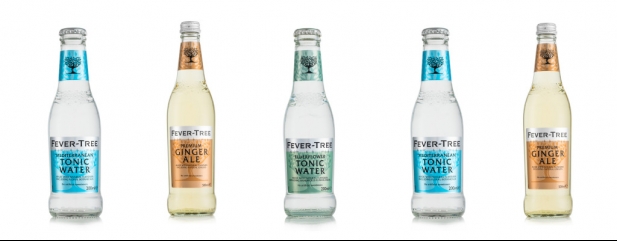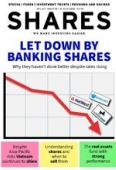Archived article
Please note that tax, investment, pension and ISA rules can change and the information and any views contained in this article may now be inaccurate.
Fevertree’s earnings forecasts slashed by nearly 50% after problems get worse

The combination of supply chain problems and rising costs has prompted analysts to nearly halve their earnings per share forecasts for Fevertree Drinks (FEVR:AIM) for each of the next three years.
The manufacturer of premium mixers warned on 15 July that several factors, including the soaring cost of glass for its bottles, higher transport fees and a shortage of workers, would lead to profit around a third lower than previous guidance.
While sales of £365 million remains the expectation for 2022, underlying profit will be no more than £45 million compared with the £65 million which had previously been pencilled in.
Analysts have also slashed estimates for 2023 and 2024. In doing so, Berenberg analyst Ashton Olds also flagged the risks associated with consumers trading down to cheaper products from other drinks companies.
Investors might have hoped Fevertree could pass on costs quite freely. When measured against the cost of the alcohol it accompanies, Fevertree’s mixers do not represent a particularly big outlay so asking drinkers to pay a bit more shouldn’t have been such a big ask.
The fact Fevertree is having to surrender profitability is slightly worrying and raises questions about the company’s procurement strategy, supply chain management and, of even more concern, the strength of the brand.
Fevertree has had three distinct phases to its life as a public company. Having joined the market in 2014, for a time it could seemingly do no wrong, with constant earnings upgrades helping drive the shares from a price at listing of 134p to peaks in August 2018 of more than £37.
The stock then stalled as the company consolidated its market position amid some fears it may have reached saturation point in the UK.
Expansion in the US and other geographies raised the prospect of further growth, but this potential is still not fully proven.
The impact of inflationary pressures and a potential cost-of-living related hit have seen the shares retreat from more than £27 at the start of 2022 to 920p.
Co-founder and chief executive Tim Warrillow bought a little more than £1 million worth of shares immediately after the profit warning-induced share price slump.
Liberum analyst Wayne Brown commented: ‘Logistics disruption and inflationary cost pressures continue to hurt and likely to do so for longer than we had expected but the US East Coast bottling plant is gradually ramping up and it is engaging with suppliers on various cost initiatives which will help mitigate the inflationary pressure but maybe more so next year than this one.’
Important information:
These articles are provided by Shares magazine which is published by AJ Bell Media, a part of AJ Bell. Shares is not written by AJ Bell.
Shares is provided for your general information and use and is not a personal recommendation to invest. It is not intended to be relied upon by you in making or not making any investment decisions. The investments referred to in these articles will not be suitable for all investors. If in doubt please seek appropriate independent financial advice.
Investors acting on the information in these articles do so at their own risk and AJ Bell Media and its staff do not accept liability for losses suffered by investors as a result of their investment decisions.
Issue contents
Education
Feature
Great Ideas
News
- Profit warnings galore as companies struggle with higher costs and lower demand
- Find out why consumer health group Haleon’s debut fell flat
- Investors are rushing to exit funds as small cap specialists really suffer
- Wealth preserver Ruffer warns bear market is ‘only mid grizzle’
- Fevertree’s earnings forecasts slashed by nearly 50% after problems get worse
 magazine
magazine








